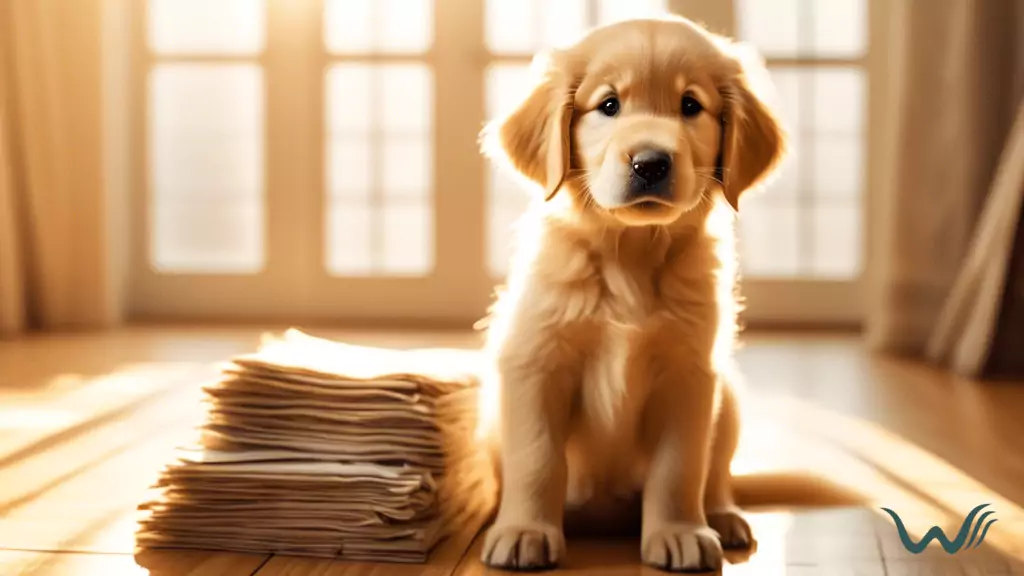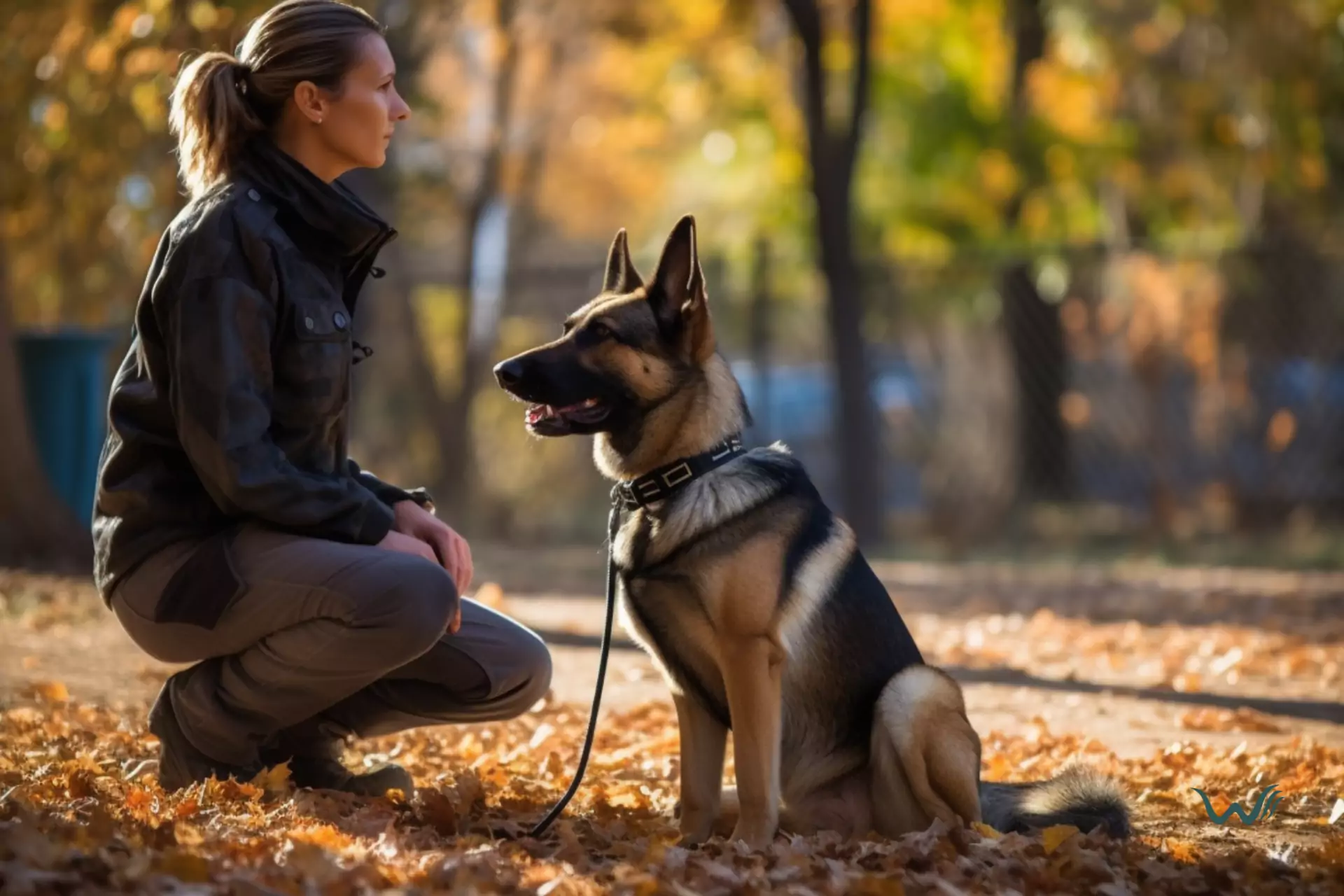

Understanding The Basics Of House Training For Puppies
by Tayyaba Amir
Last updated: March 5, 2024
Verified and Approved by:
Angela Morris,
MSW, LCSW
Fact Checked

House training is an essential skill that will help ensure a happy and harmonious home for you and your pup. By understanding the fundamentals of house training, you can create a routine, establish a designated elimination area, and use positive reinforcement techniques to teach your puppy where and when to do their business. With a little patience and consistency, you’ll have a well-behaved and house-trained puppy in no time!
In this article, we will guide you through the process of house training your puppy, step by step. First, we will discuss the importance of setting a routine for your puppy. Dogs thrive on routine, and establishing a consistent schedule for feeding, playtime, and potty breaks will help your puppy understand what is expected of them. Next, we will delve into the concept of establishing a designated elimination area. By providing a specific spot for your puppy to do their business, you can minimize accidents in the house and make the training process more efficient.
We will also explore positive reinforcement training techniques, such as rewards and praise, which can be highly effective in motivating your puppy to behave appropriately. Lastly, we will address how to manage accidents and clean-up, as accidents are bound to happen during the training process. By following these guidelines and approaching house training with patience and a positive attitude, you’ll be well on your way to a happy and well-trained puppy.
Key Takeaways
- Establishing a routine is important for successful house training, including consistent feeding times, playtime, and potty breaks.
- Designating a specific elimination area helps minimize accidents and makes the training process more efficient.
- Positive reinforcement techniques, such as rewards and praise, are effective in motivating puppies to behave appropriately during house training.
- Accidents will happen, so it’s important to remain calm, promptly clean up any mess, and take the puppy outside immediately when house training.
Setting a Routine for Your Puppy
Setting a routine is essential for house training your puppy and ensuring that they understand when and where they should go to the bathroom. Plus, having a consistent schedule will also make your life easier and help you avoid any accidents in the house.
First things first, you need to figure out the best times for your puppy to go outside. Typically, puppies need to eliminate after waking up, after eating, and after playing. So, make sure to take your pup outside first thing in the morning, right after meals, and after any vigorous play sessions. Remember, consistency is key here! Take them to the same spot in your yard every time, as the scent will help them understand that this is their designated bathroom area.
Next, you’ll want to establish a feeding schedule for your pup. By feeding them at the same times every day, you’ll be able to predict when they’ll need to go outside. Most puppies need to go to the bathroom about 15-30 minutes after eating, so plan accordingly. And don’t forget to praise and reward your puppy when they do their business outside! Positive reinforcement is a powerful tool in house training and will help your pup understand that going outside is the right thing to do.
By setting a routine for your puppy, you’re not only helping them learn where and when to go to the bathroom, but you’re also setting them up for success in other areas of their life. Dogs thrive on routine and structure, so by providing that for them, you’re fulfilling their subconscious desire for serving others.
Establishing a Designated Elimination Area
To successfully teach your furry friend where to relieve themselves, it’s important to designate a specific area for them to do their business. By establishing a designated elimination area, you are providing your puppy with a clear and consistent place to go, making the house training process much easier for both of you.
Here are three reasons why having a designated elimination area is important:
- Consistency: By consistently taking your puppy to the same spot each time they need to go, you are reinforcing the idea that this is where they should relieve themselves. This helps to establish a routine and makes it easier for your puppy to understand where they should go.
- Reduced Confusion: Having a designated area eliminates any confusion for your puppy about where they should go. They won’t be tempted to relieve themselves in random spots around the house, as they will understand that their designated area is the appropriate place.
- Easy Cleanup: By having a specific area for your puppy to go, you can easily clean up after them. This helps to maintain a clean and hygienic living environment for both you and your furry friend.
With a designated elimination area, you are setting your puppy up for success in their house training journey. Be patient and consistent with your training, and soon enough, your puppy will be relieving themselves in the designated spot like a pro.
Positive Reinforcement Training Techniques
Using positive reinforcement techniques, you can easily teach your furry friend to become a well-behaved and obedient companion. By rewarding your puppy for good behavior, such as using the designated elimination area or following basic commands, you can create a positive association with these actions. This will motivate your puppy to continue behaving desirably.
When it comes to house training, positive reinforcement is key. Instead of scolding or punishing your puppy for accidents or misbehavior, focus on rewarding them for doing things right. This can be done through treats, praise, or even a favorite toy. For example, if your puppy successfully uses the designated elimination area, immediately give them a treat and shower them with praise. This will reinforce the idea that using that area is a positive and rewarding behavior.
It’s important to remember that puppies are eager to please and learn, so using positive reinforcement techniques will not only make the training process more enjoyable for both of you, but it will also strengthen the bond between you and your furry friend.
Managing Accidents and Clean-up
When accidents happen, you can quickly clean up the mess and prevent your puppy from repeating the behavior. It’s important to act swiftly and calmly when dealing with accidents in the house.
First, gather the necessary cleaning supplies such as paper towels, a stain remover, and gloves. Use the paper towels to carefully blot up as much of the mess as possible, being careful not to spread it around. Once the majority of the mess is removed, use a stain remover specifically designed for pet accidents to clean the area thoroughly. This will help eliminate any lingering odor that could attract your puppy back to the same spot.
In addition to cleaning up accidents, it’s important to prevent your puppy from repeating the behavior. One effective way to do this is by establishing a consistent schedule for potty breaks. Take your puppy outside to the designated potty area at regular intervals throughout the day, including after meals, naps, and playtime. When your puppy successfully goes potty outside, reward them with praise, treats, or a favorite toy. This positive reinforcement will help reinforce the desired behavior and encourage your puppy to continue going potty outside.
Consistency and Patience in the Training Process
Consistency and patience are key in successfully teaching your furry friend where to do their business. House training a puppy can be a challenging process, but with the right approach and mindset, you can make it a positive and rewarding experience for both you and your pup. Remember, your puppy is still learning and may have accidents along the way. It’s important to remain patient and understanding during this time.
One of the most important aspects of house training is consistency. Establish a routine for your puppy, including regular feeding times and bathroom breaks. Take your puppy outside to the designated potty area at the same times every day, such as after meals, naps, and playtime. This will help your puppy understand when and where they are supposed to go. Be sure to use a consistent command, such as “go potty,” to reinforce the behavior you want.
In addition to consistency, patience is paramount in the training process. It’s normal for puppies to have accidents, especially in the beginning stages of house training. Instead of scolding or punishing your puppy, remain calm and take them outside immediately. Positive reinforcement is key – praise and reward your puppy when they go in the correct spot. This will help them understand that going potty outside is what you want them to do.
Frequently Asked Questions
How long does it typically take to fully house-train a puppy?
House training a puppy can take anywhere from a few weeks to several months. It depends on various factors like consistency, patience, and the individual puppy’s learning ability. Remember, it’s a process that requires dedication and understanding.
Are there any specific breeds that are easier or more difficult to house-train?
Some breeds may be more challenging to house train than others due to their stubbornness or independent nature. However, with patience, consistency, and positive reinforcement, any breed can be successfully house trained.
Should I use puppy pads or take my puppy outside to eliminate it?
To fulfill your puppy’s needs and ensure successful house training, taking them outside is the best option. It allows them to associate eliminating with the outdoors, preventing confusion. Plus, it strengthens the bond between you and your furry friend.
What should I do if my puppy continues to have accidents even after being consistently trained?
If your puppy continues to have accidents even after consistent training, don’t worry! Stay patient and continue reinforcing positive behavior. Consider consulting a professional trainer for additional guidance and to rule out any underlying medical issues. Keep up the good work!
Can I hire a professional dog trainer to help with house training my puppy?
Yes, you can definitely hire a professional dog trainer to assist you in house training your puppy. They have the expertise and experience to address any challenges and guide you through the process effectively.
Certify Your Emotional Support Animal Today

Why You Can Rely on Us?
At Wellness Wag, we believe your pet deserves care rooted in both science and compassion. Each article is carefully researched, written in clear language for pet owners, and then reviewed by qualified professionals to ensure the information is evidence-based, current, and practical for real-life care. Our goal is to help you feel confident in making informed decisions about your pet’s health and well-being.
Reviewed by
Angela Morris, MSW, LCSW
Angela is a licensed clinical social worker with 20 years of experience in patient advocacy and community mental health. She has assisted numerous clients with ESA evaluations and brings a deep understanding of disability accommodations, ensuring that all information is accurate, supportive, and practical.

Written by :
Tayyaba Amir
Last Updated :
March 5, 2024










